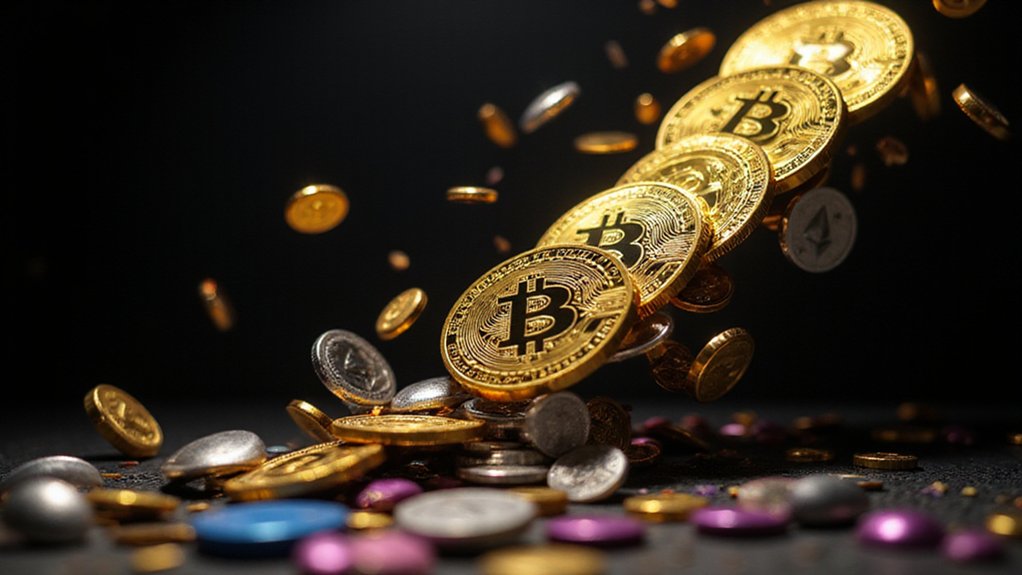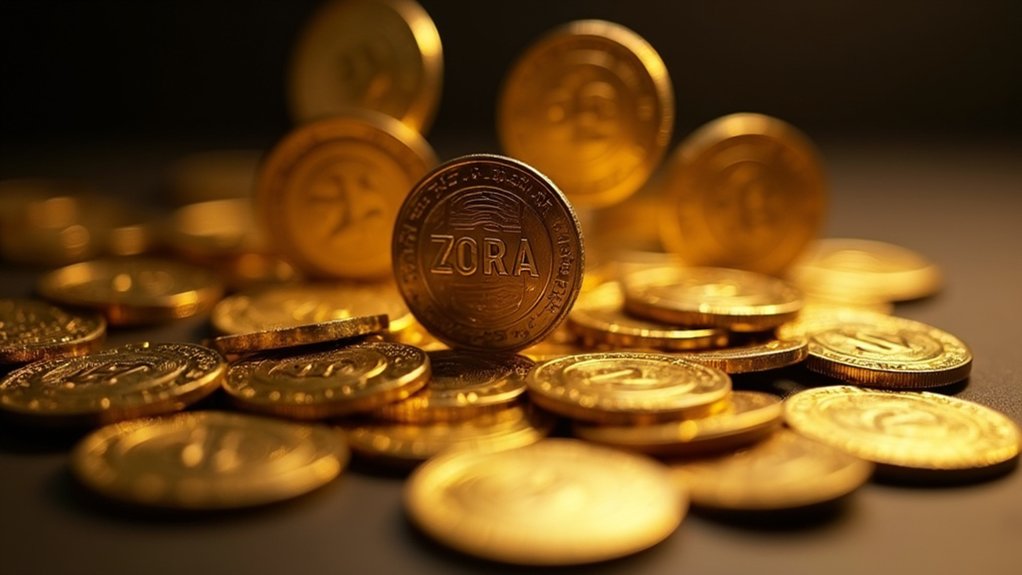While most nations grapple with cryptocurrency adoption rates hovering in the single digits, South Korea has achieved something approaching a financial revolution—or perhaps a national obsession, depending on one’s perspective. Over 16 million South Koreans now hold accounts with domestic crypto exchanges, representing roughly 32% of the population—a penetration rate that would make most fintech executives weep with envy.
South Korea’s 32% crypto adoption rate represents either remarkable financial evolution or collective madness—most likely both.
The statistics border on the surreal: daily trading volumes frequently exceed $12 billion, with total volume forecasted at $663 billion for 2025. To put this in context, crypto users now outnumber individual stock investors in the country, suggesting either remarkable prescience or collective delusion (time will presumably tell which). Major exchanges like Upbit and Bithumb have become the primary venues for this digital asset frenzy, facilitating high-frequency trading with the efficiency of seasoned financial institutions.
What began as a millennial phenomenon has evolved into something far more thorough. While 20-somethings initially drove adoption—with 22.7% reporting cryptocurrency purchases in late 2017 surveys—the demographic has broadened considerably. Nearly half of users on the two largest exchanges are now in their 40s and 50s, indicating that crypto fever has transcended generational boundaries with remarkable speed.
The underlying drivers reveal themselves as fundamentally practical: inflation concerns, wage stagnation, and real estate prices that would make Manhattan brokers blush. Cryptocurrencies have effectively become South Korea’s answer to traditional economic malaise, with Bitcoin increasingly replacing gold as a preferred store of value among certain segments. The collective holdings of these 16 million users amount to 102.6 trillion won in crypto assets, underscoring the massive capital deployed in this digital transformation.
Perhaps most tellingly, the Korean won has emerged as the world’s second-most-used fiat currency for crypto transactions—a development that speaks to both domestic enthusiasm and international market dynamics. Industry insiders predict user counts could reach 20 million by year’s end, suggesting this particular experiment in mass financial behavior is far from concluded. This remarkable growth trajectory has positioned South Korea as Asia’s best-performing crypto market, with other nations closely monitoring its regulatory and technological approaches. While trading dominates the landscape, some investors are also exploring cryptocurrency mining opportunities, particularly for alternative cryptocurrencies that offer better profitability than Bitcoin.
The shift from equity markets toward digital assets represents more than speculative fervor; it signals a fundamental recalibration of investment preferences among South Koreans who apparently view cryptocurrency not as exotic speculation, but as mainstream financial infrastructure. Whether this proves prophetic or cautionary remains an open question.








